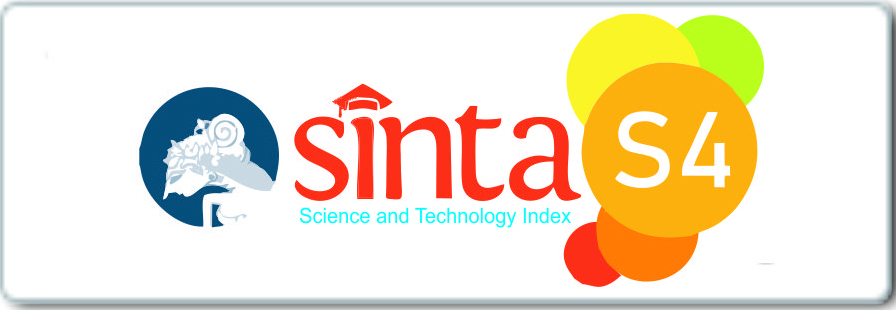Improving School Health Literacy for Teachers-Students-Parents as Steps to Control Covid-19 Transmission Regarding School Re-Opening Attempts
Downloads
fluent.
Singhal T. A Review of Coronavirus Disease-2019 (COVID-19). Indian J Pediatr. 2020;87(4):281–6.
Raiz F dkk. Bunga Rampai Covid-19 : Buku Kesehatan Mandiri Untuk Sahabat. First. Islamic Medical Aassociation and Network of Indonesia. Depok: PD Prokami; 2020.
Sari RP, Tusyantari NB, Suswandari M. Dampak Pembelajaran Daring Bagi Siswa Sekolah Dasar Selama Covid-19. Prima Magistra J Ilm Kependidikan. 2021;2(1):9–15.
Yulianti DT, Damayanti D, Prastowo AT. Pengembangan Digitalisasi Perawatan Kesehatan Pada Klink Pratama Sumber Mitra Bandar Lampung. J Teknol dan Sist Inf. 2021;2(2):32–9.
Ni Luh Prihanjani, Nyoman Wirya LAT. Penerapan Metode Bercerita Berbantuan Media Boneka Tangan Untuk Meningkatkan Kemampuan Berbicara Anak Usia 5-6. e-Journal Pendidik Anak Usia Dini Univ Pendidik Ganesha. 2016;4(3).
Izzati L, Yulsyofriend. Pengaruh Metode Bercerita Dengan Boneka Tangan Terhadap Perkembangan Kognitif Anak Usia Dini. 2020;4(1):472–81.
Jaya S, Handoko P, Suparta W. Upaya Meningkatkan Pemahaman Masyarakat Rptra Kelurahan Bintaro Akan Manfaat Dan Bahaya Teknologi Digital Melalui Penyuluhan Sehat Berbasis Pendidikan. Pros Semin Nas Pengabdi Masy LPPM UMJ. 2019
Shianata CM, Engka JNA, Pangemanan DHC. Happy Hypoxia Pada Coronavirus Disease. J Biomedik Jbm. 2021;13(1):58–66.
Pratiwi NE, Simanjuntak BH, Banjarnahor D. Pengaruh Campuran Media Tanam Terhadap Pertumbuhan Tanaman Stroberi (Fragaria vesca l.) Sebagai Tanaman Hias Taman Vertikal. J Ilmu Pertan. 2017;29(1):11–20.
Istiqamah I, Hiola SF, Karim H. Studi Morfologi Tanaman Sansevieria Di Kota Makassar. J Bionature. 2018;19(1):56–66.
Copyright (c) 2021 Indonesian Journal of Dental Medicine

This work is licensed under a Creative Commons Attribution 4.0 International License.
This is an open access journal, and articles are distributed under the terms of the Creative Commons Lisence, which allows others to remix, tweak, and build upon the work non-commercially, as long as appropriate credit is given and the new creations are licensed under the identical terms.
Copyright notice:
IJDM by UNAIR is licensed under a Creative Commons Atribusi 4.0 Internasional.
- The journal allows the author to hold the copyright of the article without restrictions.
- The journal allows the author(s) to retain publishing rights without restrictions.
- The legal formal aspect of journal publication accessibility refers to Creative Commons Attribution (CC BY)
















